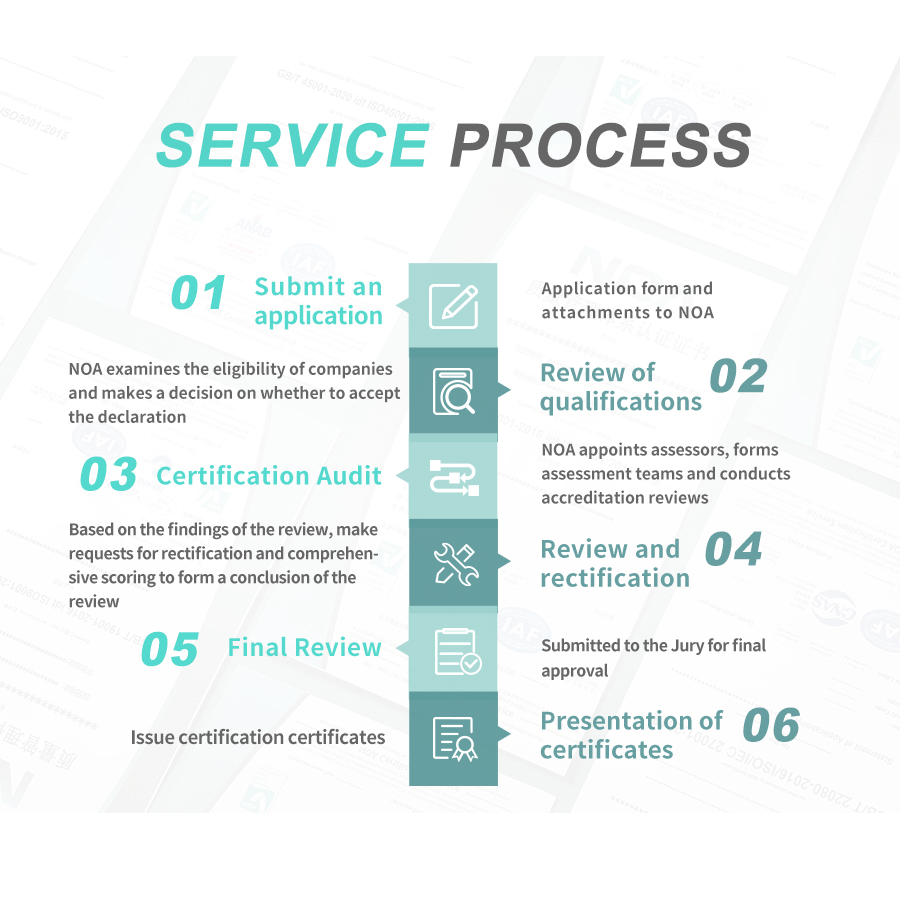
HACCP originated from the space food development program of NASA in the 1960s, and was vigorously promoted by the food and Agriculture Organization of the United Nations (FAO), the World Health Organization (who) and the food and Drug Administration of the United States (FDA). It is a food safety assurance system widely recognized and accepted in the world. It has been enforced and accepted in many countries. It is a globally accepted safe food production standard.
HACCP is the abbreviation of hazard analysis critical control point. As a scientific and systematic method in hazard identification, evaluation and control, it is applied in the process from the production of primary products to the consumption of final products. After hazard analysis, the possibility and severity of hazards are determined, and specific hazards and control measures are determined and evaluated, so as to prevent the occurrence of food safety hazards and ensure food safety. HACCP emphasizes the role of the enterprise itself. Compared with the general traditional supervision methods, it focuses on prevention rather than relying on the testing of the final products. It has higher economic and social benefits.
HACCP mainly includes seven basic principles:
1: hazard analysis.
2: determine the key control points.
3: develop key limits.
4: establish a system to monitor the control of key control points.
5: when the monitoring results indicate that a certain key control point is out of control, determine the corrective actions to be taken.
6: establish certification procedures to verify that HACCP system is operating effectively.
7: establish files of procedures and records related to the above principles and applications. In the food industry, HACCP is more and more widely used. It has gradually evolved from a management means and method to a management mode or management system. In close cooperation with other international organizations, the international organization for Standardization (ISO) has absorbed and integrated the beneficial contents of other management system standards based on the HACCP principle to form a food safety management system based on HACCP.

HACCP can certify food producers, feed producers, catering service providers, food sales traders, food transportation and storage service providers, food packaging material manufacturers, food additive manufacturers, etc. According to the requirements of the implementation rules, HACCP certification also takes into account the compliance with applicable laws, regulations, and standards of China and the importing country (region), as well as the compliance with the safety and health requirements of export food production enterprises (when applicable). Each entry-exit inspection and quarantine bureau can rely on the certification results of the certification agency when filing for enterprises that confirm compliance with the HACCP certification requirements, simplify the filing process, and reduce the frequency of on-site inspection and supervision of enterprises.
HACCP is a management system that ensures food safety and a preventive system that analyzes and controls food safety hazards throughout the food supply chain, proposes necessary preventive and corrective measures, and establishes monitoring and verification procedures to eliminate and control food safety hazards and ensure food safety.
1、 Composition of HACCP certification
HACCP quality control law was first developed by Pillsbwg Company in 1973. It is a management system for ensuring food safety, with the advantage of shifting the focus of safety assurance from traditional inspection of final products to the control of process and raw material quality. This can avoid huge losses caused by batch production of nonconforming products.
This management system generally consists of the following components:
1. Analyze and evaluate the hazards that may occur in various links from raw material procurement to product processing to consumption;
2. Based on these analyses and assessments, establish a critical control point (CCPS) for the entire process of a food product from raw materials to final consumption;
Establish procedures that can effectively monitor critical control points.
2、 HACCP prerequisites:
HACCP is not an isolated system, nor can it be relied on to solve all management problems.
The establishment of HACCP requires the support and commitment of enterprise managers to the implementation of HACCP; Secondly, enterprises need to have a certain management foundation as a support; Furthermore, enterprises should comply with good hygiene practices (GMP) in relevant industries on basic hardware, and should develop and implement a set of standard operating procedures (SSOPs) for basic hygiene control. Only in this way can the HACCP system operate effectively.
HACCP is a preventive food production safety and health control system, it is based on the following seven principles:
Principle 1: Hazard Analysis and Preventive Measures (HA)
Principle 2: Identify Critical Control Points (CCPS)
Principle 3: Establishing CLS (CL)
Principle 4: Monitoring critical Control Points (M)
Principle 5: Corrective Action (CA)
Principle 6: Establishing Verification Procedures (V)
Principle 7: Record Keeping Procedure (R)
The relevant standards are as follows:
Hazard Analysis and Critical Control Point (HACCP) system certification requirements (V1.0)
○ The introduction of HACCP, will make the quality management system of enterprises more reasonable, more scientific;
○ The decline in the reject rate, the reduction in customer complaints, and the decline in product inspection costs, reducing the quality cost of products;
○ HACCP principles and methods are logical and operational, easy to understand and implement enterprises;
○ HACCP in the global application and spread, make it in the international food safety and health control pronoun;
○ The establishment of HACCP system will strengthen the quality management foundation of enterprises and add new strength for the development of enterprises;
○ Enterprises that effectively establish and implement HACCP and obtain independent third-party certification will add new highlights to their corporate image and make customers more confident in their products.













Tel:+86-400 821 5138
Fax:+86-21 3327 5843
Email:noa@noagroup.com